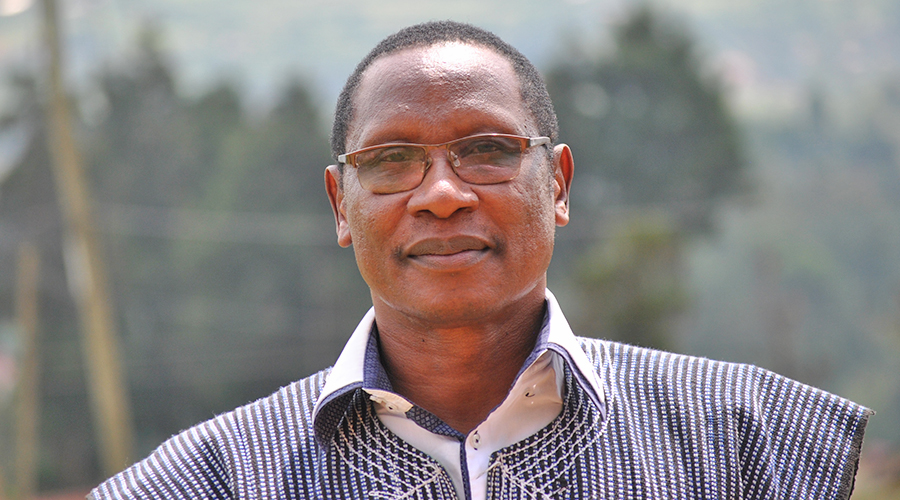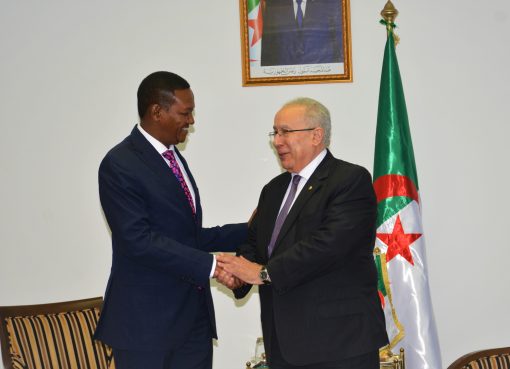Kenya’s younger generation needs to be encouraged to read or be told stories from an early age for it to find meaning in life.
Professor of Literary Communication at Masinde Muliro University of Science and Technology (MMUST) Egara Kabaji says entrenching a reading culture and promoting oral literature among the youth could reduce ethnic prejudices, promote tolerance and, ultimately, forge nationalism.
Prof. Kabaji notes that the country has to start with children reading for leisure to build a reading culture, adding that towards creating such a society, retirees should write and share their experiences with adults and children alike.
While indicating that many Kenyans did not have a reading command of English, Swahili or vernacular the university don adds that a reading culture would inspire an active population of writers who would in turn create an adequate corpus for libraries and bookshops to stimulate and sustain literacy.
For any society to prosper, he says the populace has to develop a craving and urge to know and observes that one of the best ways of empowering people is through exposure to books.
“An accurate definition of development has to incorporate the empowerment of the human mind and the strengthening of its capacity to make meaningful choices in life. For a nation to develop, the human mind has to be empowered,” offers the don.
In a presentation he made during the launch of former head of Presidential Press Service (PPS) Lee Njiru’s memoirs titled ‘Presidents’ Pressman,’ the literary scholar regrets that educational systems in Africa are ingrained with alienating aspects that lead to abhorrence of the book where learners are conditioned ‘to read hard in school in order to pass exams and enjoy life’
“In some bizarre instances in Kenya, some students prepare bonfires using their books after their final paper in high school. At that level, they presume they have ‘finished reading’. Those who get to the university end their reading after the final paper to ‘start enjoying life,” he said.
The don who is also the Vice President of the Pan African Writers Association proposes that Kenya and the entire East Africa evolve mechanisms of popularizing reading and making it fashionable.
The campaign, he says should entail the distribution of books to all literate populations, the formation of reading clubs in schools and villages and deliberately incentivizing reading through national local and community initiatives.
This, he notes, will help citizens deconstruct the notion of success and accomplishment.
Look at the media today and you will see that it is awash with personalities that we lavishly refer to as ‘celebs’. None of them is a widely read and knowledgeable person. Reading and accomplishing things intellectually is, unfortunately, not fashionable. It is amazing how easy it is to be a ‘celeb’ in the popular context, he added.
While indicating that Kenyan publishers had the moral duty to champion their own through publication of both fiction and nonfiction works by local authors the University don adds that if prominent citizens wrote their memoirs, Kenyans would not have difficulty choosing the right people for public office.
“A knowledgeable populace cannot be gullible to fall for credulous machinations. With a high level of awareness, the knowledgeable populace, inevitably, raises the politics of a nation to a more progressive level and influences its leaders to address the real issues of the moment,” he explains.
‘The Presidents’ Pressman’, the first official work by the former Head of the Presidential Press Service Unit, is published by Kenya Literature Bureau.
According to Prof. Kabaji prominent public servants, politicians, sportsmen, professionals and businessmen need to know that they are custodians of Kenya’s history and hence the need to have that history documented.
“It is painful when a prominent person dies without having details of their lives documented. By doing so, they take a part of the country’s history to their graves,” states Prof. Kabaji.
While we mourn the paucity of written works on Kenyan public figures, the same cannot be said of other parts of the world, especially the West.
Years before he became US President, Barack Obama took time to write two highly celebrated books — Dreams from my Father and The Audacity of Hope. Today, the books are best sellers and are earning the former US President a tidy sum of money.
Public figures as young as 20 in the West, where the reading culture is entrenched, have had their memoirs written including Manchester United and England football star Wayne Rooney had his biography, My Story so Far, written when he was 20 years old.
Among prominent Kenyans who have penned their memoirs include former president Daniel Moi who commissioned Princess Diana’s biographer, Andrew Morton, to write his biography, The Making of an African Statesman, while months before his candidacy in 2007, Raila Odinga launched his biography, An Enigma in Kenya’s Politics, written by Nigerian Babafemi Badejo.
Others include former Vice Presidents Oginga Odinga’s ‘Not yet Uhuru’, Moody Awori’s ‘Riding on a Tiger’ and Kalonzo Musyoka’s ‘Against All Odds, former members of parliament Njenga Karume, Oburu Odinga and Kalembe Ndile’s ‘From Charcoal to Gold’, ‘In the Shadow of my Father’ and ‘My Squatters, My Struggles, My Dream’ respectively.
By spilling the beans on the behind-the-scenes dealings at the State House through his memoirs Mr. Njiru says he has no regrets for stepping into people’s toes as he was just “performing his normal duties.”
By Anne Mwale




